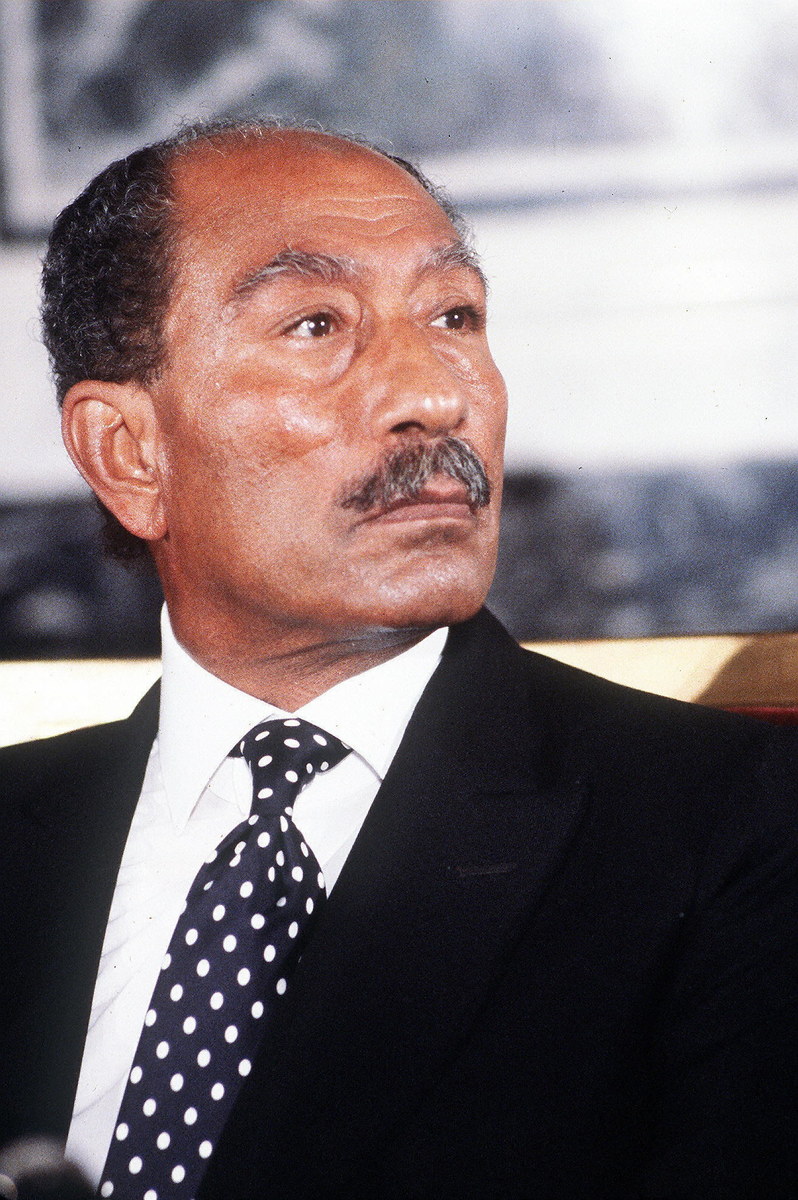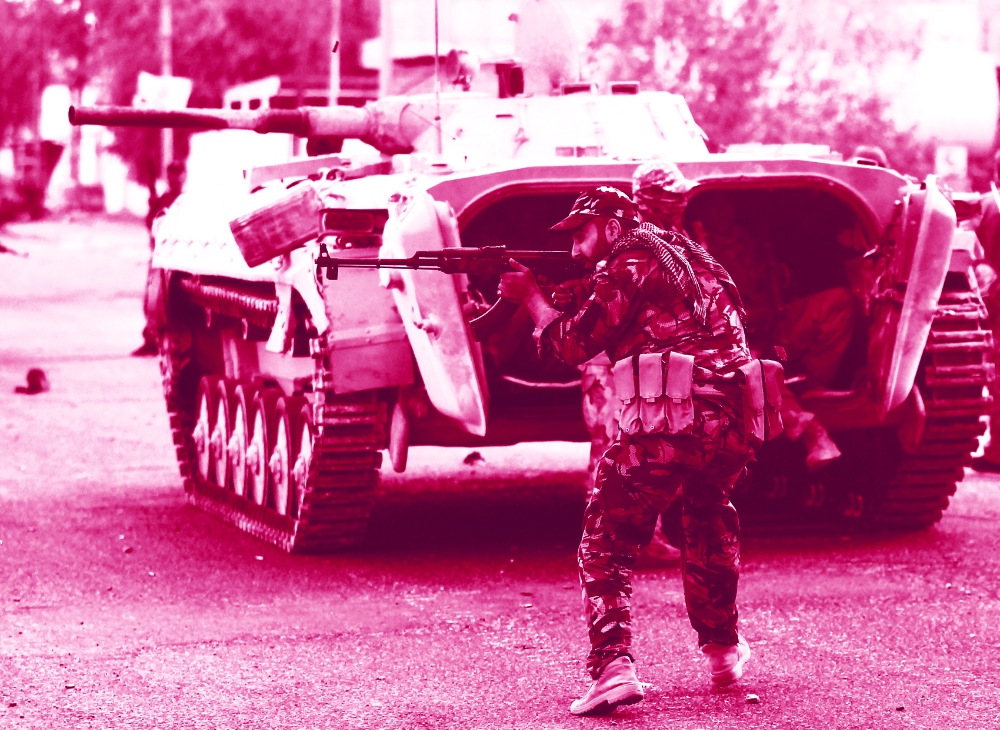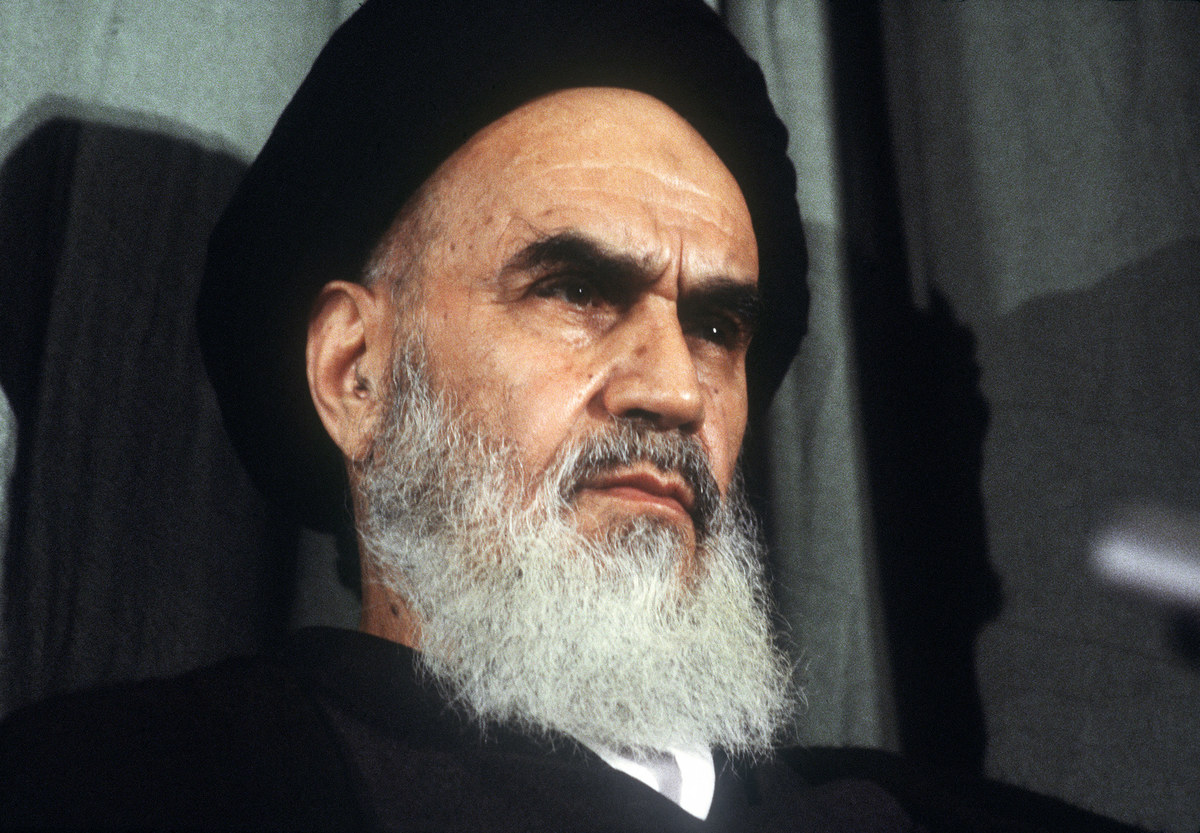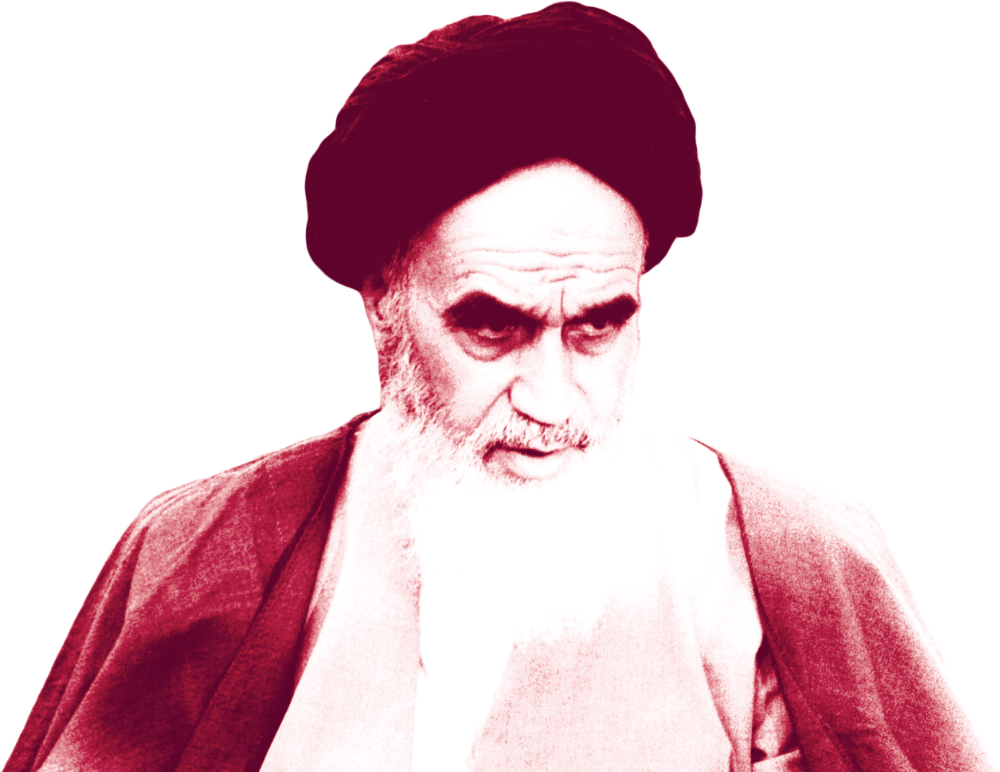CAIRO: On Oct. 6, 1981, Egypt’s President Anwar Sadat was gunned down by Islamist militants during a military parade marking the anniversary of the 1979 Arab-Israeli War. The world condemned the attack. But in Tehran, the assassination was applauded.
A hit squad composed of dissident army officers affiliated with the Egyptian Islamic Jihad launched the attack, hoping it would spark an Islamist uprising. A brief insurrection took hold in Asyut in Upper Egypt, but was soon put down.
Although Iran had no direct hand in the plot to kill Sadat, Ayatollah Khomeini, architect of the 1979 Islamic Revolution that overthrew the Shah, certainly played a part in inciting the act of violence.
Sadat, whose peace deal with Israel made him the target of hardline Islamists, had frequently lashed out at Iran’s theocratic regime, branding Khomeini a “lunatic” who misrepresented Islam.

On Oct. 6, 1981, Egypt’s President Anwar Sadat was gunned down by Islamist militants during a military parade marking the anniversary of the 1979 Arab-Israeli War. (AFP/File Photo)
Iran’s new rulers, on their part, accused Egypt of “betraying” the Palestinian people and launched virulent diatribes against Sadat for granting asylum to the Shah and giving the deposed monarch a state funeral.
“The Egyptian people must know that had they only rebelled just as the Iranian people did, they would have thwarted the conspiracies,” Khomeini said after Sadat’s deal with Israel.
“The people of Egypt should not fear their government and not care about its laws. Just as our people broke the barrier of fear, they must fill the streets, banish the tails of arrogance, and not compromise for this despised authority.”
So grateful was Iran for the murder of Sadat that it glorified his assassin, Khalid Islambouli, even naming a street in Tehran after him.
But then again, incitement, export and celebration of violent fundamentalism is written into the DNA of the 1979 revolution.

While the world condemned assassinations, in Iran they were applauded. (AFP)
Iran’s interventionist policy, implemented through proxy warfare and malign behavior, is bound up in the same Khomeinist values that live on today through his successor, Supreme Leader Ali Khamenei.
“When we say we must spread our revolution everywhere, it must not be misinterpreted to us wanting to expand our borders,” Khomeini said in a sermon, soon after taking power.
“We consider that all Islamic countries are a part of us. We respect each country. We wish to spread what happened in Iran and this awakening that led the people to steer away from the great powers.”
Iran’s constitution even says the task of the Islamic Revolutionary Guard Corps (IRGC) is to spread the rule of God on earth and to build a unified global society based on the struggle to liberate the oppressed of the earth. It also says the task of Iran’s foreign policy is to support “legitimate jihad.”

A headshot of the Ayatollah Ruhollah Khomeini taken in Tehran, 05 February 1979, during a meeting shortly after his return from 15 years of exile, as the insurrection against the Shah's regime spreads all over the country. (AFP/File Photo)
Iran inspired the first extremist organization in Palestine, the Islamic Jihad Movement, in 1979, and supported Lebanon’s Hezbollah and Iraq’s Islamic Dawa Party throughout the 1980s.
The IRGC and its Hezbollah underlings offered training to Al-Qaeda operatives in the 1990s and continue to fan the flames of “legitimate jihad” in Iraq, Afghanistan and Yemen.
Iranian incitement has contributed to the murder of prominent Lebanese intellectuals, of whom Husayn Muruwwa, Mahdi Amel and Lokman Slim are just three.
The US State Department consistently brands Iran the world’s number one sponsor of terrorism, highlighting its execution of dissidents at home and targeting of opponents abroad.
Khomeini glorified the sacrifices of impressionable young men like Islambouli who fill the ranks of Iran’s proxy armies, inciting others to fight and die in the cause of “jihad” and for achieving revolutionary aims.
“For God is my witness, whenever I look at these young people fighting on the front lines with passion and vigor, I feel ashamed of myself,” Khomeini said in one sermon. “Who are you? What are we? We have spent eighty something years in this world — I am speaking for myself — and we have not achieved what they have done in these few days.
“We could not discipline ourselves. For me it is too late, but you, you should discipline yourselves, be careful not to trade this world for something else. We are all mortal, that we must approach God in order to make room for us in the other world.”

Khomeini glorified the sacrifices of impressionable young men who fill the ranks of Iran’s proxy armies, inciting others to fight and die in the cause of “jihad” and for achieving revolutionary aims. (AFP/File Photo)
Much of the ideology used to incite violence and motivate the regime’s foot soldiers today was formulated long before Khomeini and his acolytes took power.
In his book, “Islamic Government,” based on a series of lectures he delivered in Iraq’s shrine city of Najaf in February 1970, Khomeini elaborated on the system of velayat-e faqih — or guardianship of the Islamic jurist — which prevails in Iran today.
The book is a mishmash of inflammatory jurisprudence and radical Islamic principles, whose ultimate aim is to incite jihad to strengthen the foundations of the revolutionary state and weaken those of the “tyrants” and “polytheists” of non-Islamic regimes who deserve to be overthrown.
“The persistence of these governments means the disruption of the system of Islam and its provisions,” Khomeini wrote. “There are many texts describing every non-Islamic regime as being polytheist, and its ruler or authority as being tyrant. We are responsible for eradicating the effects of polytheism from our Muslim society and shedding them away from our lives.”
In essence, Khomeini peddled the baseless claim that a vast Jewish conspiracy was at work and that non-Islamist regimes, including the Gulf monarchies, were in league with Israel and Western powers.
“We must expose this betrayal, and shout at the top of our lungs so that people understand that the Jews and their foreign masters plot against Islam, and pave the way for Jews to prevail over this whole world,” he said.
Khomeini also railed against what he viewed as the influence of secularism on regional governments. “All colonial institutions have inculcated in people’s mind that religion does not meet with politics, spirituality does not have to interfere in social affairs and jurists have no right to determine the destiny of the nation,” he claimed with no basis in fact.
“It is very unfortunate that some of us believed in those falsehoods, thus achieving the greatest hope that the souls of the colonizers had dreamed of.”
For Khomeini, the infiltration of these secular institutions by Islamists was an effective means of overthrowing them. “It is natural that Islam be allowed to infiltrate the organs of the oppressors if the real aim is to curb grievances, or to cause a coup against those who are in charge. In this case, infiltration is even obligatory, and no one can disagree,” he wrote.
Indeed, he echoed the conclusions of Sayyid Qutb, a leading member of the Muslim Brotherhood who was convicted and hanged in 1966 for plotting the assassination of Egyptian President Gamal Abdel Nasser. “We must fight the rule of the tyrant, because God almighty has ordered it and he has forbidden obedience to the tyrant,” Khomeini wrote.
Decades later, on the eve of the Islamic revolution’s 40th anniversary, Khomeini’s pupil, Ali Khamenei, issued his “Fundamental Islamic-Iranian Blueprint for Progress.”
The 56-point document, published on Oct. 14, 2018, set out the supreme leader’s vision for the next 50 years, including the “extension of the reasoning and the spirit of “jihad” in the Islamic world, supporting Islamic liberation movements and demanding the rights of the Palestinian people.”
Half a century after Khomeini published “Islamic Government,” it is obvious that the same principles of interventionism and incitement are shaping the regime’s vision for the next 50 years.



























